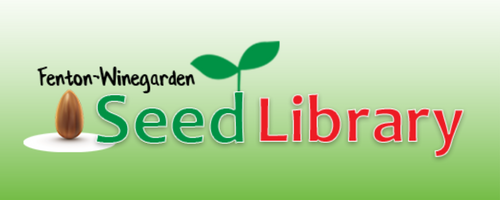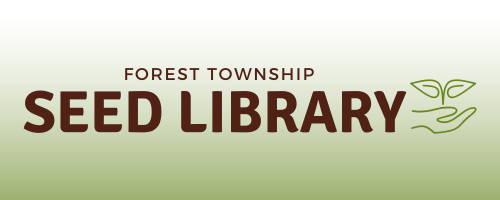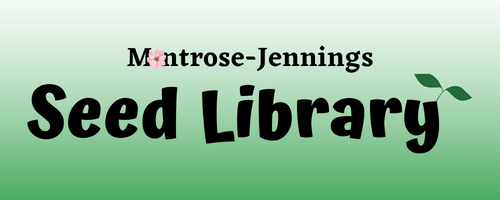Seed Library



What is a seed library? At our Fenton-Winegarden, Forest Township and Montrose-Jennings branches, we have a collection of seeds. They are free to take and grow, and if you wish, you may save seed to return at the end of the growing season.
Why do we have a seed library? Over a hundred years ago, there were hundreds of varieties of vegetables available from seed companies. As of 1983, those varieties fell to just a handful. By offering free seed to the community we can keep many of the heirloom varieties alive. And by saving the seed year after year, we can create varieties that are suitable to our particular environment. Donating those seeds to our seed library and sharing with other gardeners will keep these varieties alive.
Growing your own food is also fun and saves money, because you’ll be enjoying fruits, herbs and vegetables that you grew yourself. More importantly, the food you grow is unlikely to be available at your local grocery. Commercial varieties of fruits and vegetables are usually hybrids. Hybrids are plants from two different parent plants created for combining traits such as thicker skins for shipping. These vegetables are bred for uniformity of size, color and sturdiness in shipping. That’s why most, if not all, store bought tomatoes are tasteless and mealy. They are bred to withstand long distance shipping at the expense of taste.
Many of the heirloom seeds have interesting histories. Backyard tomato breeder Radiator Charlie Byles developed Mortgage Lifter tomato in 1940s Virginia, using the profits from tomato seedling sales to pay off his farm. Omar’s Lebanese tomato hails from a family farm in a Lebanese hill town. A Lebanese college student brought the seeds to America to grow.
Maybe you have a family heirloom seed that you grow year after year that has been passed down through the generations of your family. If so, we’d love to share it.
How does it work? Come into either branch at any time during the growing season (March – August), and check-out the seeds you want. Don’t worry — you don’t need to return them. All we ask is that you fill out a check-out card so we can keep track of statistics. We want to know what types and varieties are popular so we can keep more of those in stock.
Can I donate seed? Yes, you may donate any leftover seeds and seeds you have grown as long as they are not hybrid seeds. Hybrid seeds are either not viable, or will not grow true to type. GMO seeds are not available to the home grower.
Please make sure that all seeds are collected from mature plants and dried accordingly. Please package seeds with all the information available so that we can share this information during the next season.
Programs: We offer many programs throughout the year on different gardening topics. Please see the event calendar for any upcoming programs.
Books: Our 19 libraries have many gardening books available for checkout.
Seeds in our collection have been donated by:
Baker Creek
Burpee
Fedco Seeds
High Mowing
Nature and Nurture Seeds
Pleasant Valley
Seed Savers Exchange
Southern Exposure Seed Exchange
and local gardeners
Gardening Tutorials
Seed Starting For Beginners
Other Resources:
MIGardener – A Michigan Seed Company with $2.00 seeds.
MIGardeners Youtube channel filled with short, helpful gardening videos.
MSU extension Gardening in Michigan
If you have questions, email Kelly Stack at [email protected].





